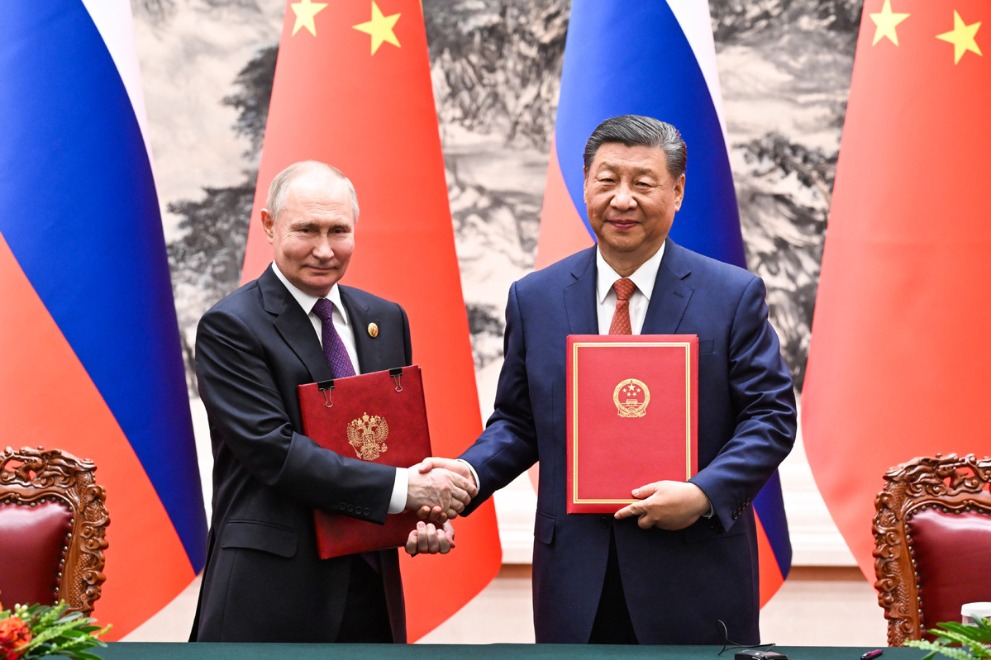Helping hands for small businesses
By Guan Qingyou | China Daily Global | Updated: 2020-02-20 09:20

Both short-term emergency measures and a long-term recovery plan are necessary
Due to the outbreak of the novel coronavirus, small-and medium-sized enterprises in China are under tremendous pressure. The government should be supportive and take specific, effective measures to help SMEs keep their capital chain-the lifeline of SMEs-working.
As of Feb 6, relevant policies had been rolled out in Beijing, Shanghai, Chongqing, and Hunan, Sichuan, Guangdong, Hainan, Fujian, Zhejiang, Jiangxi and Shandong provinces as well as 12 prefecture-level cities. Support policies for SMEs in these cities and provinces mainly focus on meeting the most urgent needs to keep companies running. The policies provide assistance in the three following ways:
First, they increase the support of the financial sector to SMEs. Shortly after the outbreak, the People's Bank of China, China's central bank, issued a notification on strengthening the support of the financial sector to the control and prevention of the coronavirus epidemic. It urges the sector to maintain adequate liquidity and step up monetary and credit support. The PBOC also points out that financial institutions should fast-track loan approvals for eligible companies, and the Ministry of Finance should give priority to companies affected by the epidemic in its decision to extend financing guarantees. Beijing and Jiangsu are among the regions that have rolled out their own policies, clearly stating that banks and financial institutions shall not reduce, rescind or delay the granting of loans to companies otherwise in good standing that have fallen on hard times due to the coronavirus epidemic.
Second, they reduce or defer tax payments for SMEs. Several cities and provinces have proposed measures to reduce the debt burdens for SMEs, reimburse unemployment insurance, and extend grace periods for social security payments. For example, Shanghai has unveiled a municipal policy to reimburse 50 percent of the unemployment insurance paid during the last year to eligible companies that refrain from or minimize downsizing. Shenzhen has rolled out preferential tax policies for urban land used for housing commodities warehouses.
Third, they help SMEs to shave operating costs. Currently, various levels of government are helping SMEs to reduce their operating costs and strengthen business continuity through reducing or waiving rental fees, cutting down on the cost of labor through online solutions and allowing companies to defer social security payments. For example, industrial parks and state-owned office buildings are waving office lease payments for their tenants over the immediate term. Binzhou in Shandong province is ramping up the supply of coal, electricity, oil and gas to reduce the cost of energy borne by companies. Huzhou in Zhejiang province is offering a skills-based subsidy to help companies reduce the cost of labor. The province of Shandong has proposed measures to reduce logistic costs for companies aside from shaving their energy bills and labor costs.
While these policies are laudable, we still need to think about the kind of near-term measures that will be immediately effective.
In light of the epidemic, SME support policies should be ultimately about having the government, state-owned enterprises and state-owned financial institutions forgoing a part of their own interests in favor of SMEs. We have to prevent two things in our analysis of the economic impact of the epidemic and our subsequent policy advising: on the one hand, having companies bear the full consequences for actions taken by the government, and on the other, implementing tax and fee reductions that we cannot afford. There has to be some basic points that the government, companies and individuals can all agree on, that is, we have to consider the impacts on companies and individuals but also the fiscal pressure on the government.
Therefore, four points of suggestions can be made.
Build an SME epidemic support system that is coordinated by the central government with local governments playing a supplementary role, with the government as a last resort and the market providing strong support. Just as the epidemic has inspired people all over China to come together to respond, helping SMEs navigate this crisis also requires the joint efforts and collaboration of all parties involved. A good way to do this may involve the central government safeguarding the macroeconomic fundamentals and local governments stepping up and filling in areas of need where the central government cannot cover so as to provide basic guarantees to SMEs. Additionally, banks, insurance and leasing companies can also come up with products uniquely suited to the needs of SMEs in an expression of solidarity.
Policy specification and implementation should be given due attention, and information disclosure should be strengthened and monitored. Detailed rules should be made on the requirements that SMEs must meet to be eligible for government support, the amount and form of support, and the application procedures, so as to improve transparency and make sure that people can truly benefit.
Despite this support, SMEs should rely first and foremost on themselves. Support policies are aimed at meeting urgent needs to help SMEs stay afloat during a difficult time, and not to provide a long-term crutch. It is the SMEs themselves that have to do the bulk of the work of surviving the crisis. In addition to ensuring employee safety, SMEs should take a proactive approach in adapting their business models and working conditions and identifying new market opportunities to become lean and mean, so that they can survive this trying time, which is a test of their viability.
The epidemic will only have a temporary impact on our economy, but we should still prepare for the worst while hoping for the best. Some experts believe that the turning point of the epidemic has yet to come. Therefore, companies should plan for all kinds of possible outcomes, while staying abreast of changes in order to take the right response in a timely manner.
























